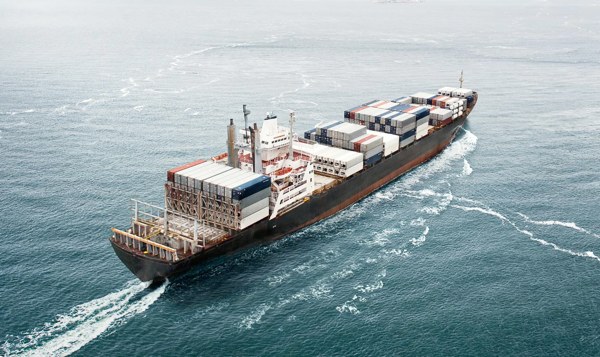The International Union of Marine Insurance (IUMI) said marine insurers last year faced growing challenges as energy claims rose against a reducing premium base and cargo accumulation risk and the frequency of major vessel casualties continued to increase.
 Donald Harrell, Chairman of IUMI’s Facts & Figures committee, commented that marine risks continue to grow “both in size and complexity”, he added “it is vital that underwriters fully understand the potential losses that they are being asked to insure. It is gratifying to see the year-on-year decrease in total losses, but we must take particular notice of the recent increase in major casualties and the reasons for this.”
Donald Harrell, Chairman of IUMI’s Facts & Figures committee, commented that marine risks continue to grow “both in size and complexity”, he added “it is vital that underwriters fully understand the potential losses that they are being asked to insure. It is gratifying to see the year-on-year decrease in total losses, but we must take particular notice of the recent increase in major casualties and the reasons for this.”
According to IUMI’s latest report for 2016 marine insurance, figures for major vessel casualties continued to climb, following on from 2015 where weather related causes led to a sudden upwards swing to what had been an otherwise declining trend.
However, total vessel loss figures continued to decline.
The energy sector saw a further depletion of its already limited premium base last year due to a drop in offshore activity, little infrastructure spending, and reduced drilling activity.
IUMI commented that “for platforms, lack of activity had meant that attritional claims costs were below the historical trend but the number of significant losses were above that trend line.
“This was particularly concerning given that the premium base had dwindled by at least two-thirds. More worryingly, it was thought that maintenance and HSE budget trimming by oil companies might soon filter through to the claims figures.”
Cargo underwriters last year faced having to keep up with growing accumulation losses both on board ship and in port:
“The new generation Ultra Large Container Carriers were capable of carrying 20,000 TEU with a potential cargo value estimated at $985 million. This represented a significant risk for cargo underwriters and one that continued to increase. Put in context, MSC Flaminia which suffered a fire in 2012 carried a cargo valued at $115 million,” IUMI explained.
Commenting on obstacles facing marine underwriting, Harrell said; “The offshore sector continues to face challenges that look likely to get worse before they get better. Energy risks per se have not reduced, but the premium base from which they are settled, or reinsured, has shrunk dramatically.
“The disaster in the port of Tianjin in 2015 serves as a reminder of the growing accumulation risk that continues to dog our sector and one that will only intensify over the coming years.
“As marine underwriters, we must continue to innovate and provide cost-effective insurance solutions to enable seaborne trade to continue without interruption.”
Willis Towers Watson (WTW) recently echoed concerns over the dwindling energy market, saying market profitability is on a knife-edge.
Lloyd’s of London related premium income from energy risks has dwindled down to $700m, from $1.06bn, between 2014 to 2016, as demand and the impact of reinsurance capital from outside the market made itself felt.
“We believe that should the current loss record deteriorate by only a small degree during 2017 then this might well be sufficient to threaten their viability,” said WTW.
However a bottom to this market could be in sight, WTW said, explaining that while rates continue to soften in energy re/insurance as of April 2017, “This deceleration may transition into a broader bottoming out of market conditions should individual portfolio loss records deteriorate further late in the year.”


